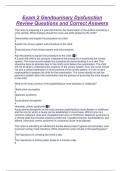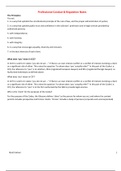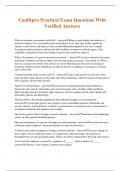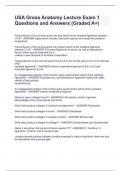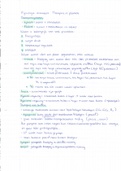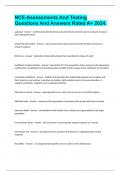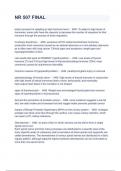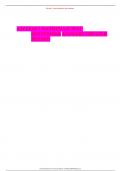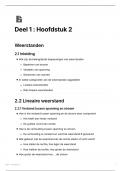Exam (elaborations)
Exam 2 Genitourinary Dysfunction Review Questions and Correct Answers
- Course
- Institution
The nurse is preparing a 3-year-old child for the examination of the urethra and taking a urine sample. What strategy should the nurse use while preparing the child? 1 Demonstrate and explain the procedure on a doll. 2 Explain the urinary system and procedure to the child. 3 Show pictures of the ur...
[Show more]
